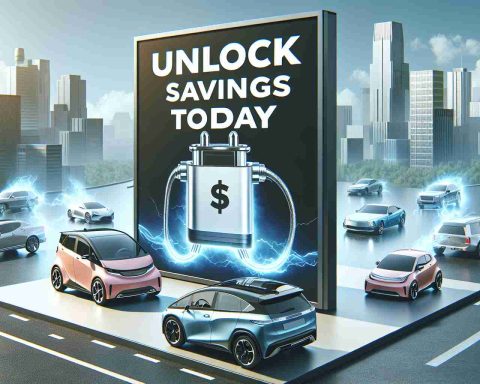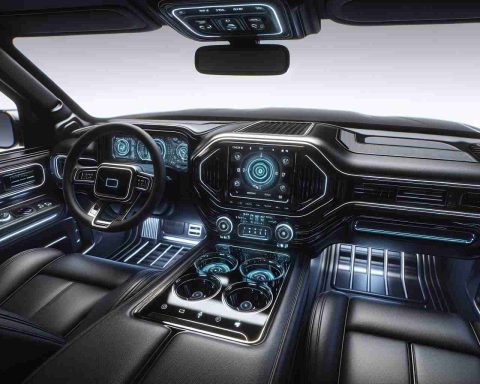India’s Electric Vehicle Evolution
India has been making significant strides towards its electrification goals, with a remarkable surge in the market share of electric vehicles in recent years. To sustain this growth and catalyze the adoption of electric vehicles further, it becomes imperative to enhance the performance and offerings of these vehicles to meet the evolving demands of consumers in the market.
Enter the Era of Solid-State Batteries
In a bid to revolutionize the electric vehicle landscape, industry players are venturing into cutting-edge technologies, particularly solid-state lithium-ion batteries. These next-generation batteries hold the promise of significantly boosting power, safety, and longevity, thereby enhancing the range and performance of electric vehicles. The shift towards solid-state batteries is fueled by the limitations posed by traditional lithium-ion batteries, such as restricted range and slow charging speeds.
Key Advantages of Solid-State Batteries
Solid-state batteries, featuring a solid electrolyte instead of the liquid counterpart in traditional batteries, offer a game-changing energy density, enabling higher energy storage capacity. This advancement translates to faster charging times, increased output, and a substantial extension of the battery’s lifespan, addressing critical concerns in the electric vehicle ecosystem. Additionally, these batteries exhibit superior thermal resilience, making them impervious to extremes of temperature and enhancing safety measures compared to liquid-state batteries.
Empowering Solid-State Battery Production
The production of solid-state lithium-ion batteries demands a meticulously controlled environment due to the sensitivity of sulfide-based solid electrolytes to moisture. To avert the degradation of batteries caused by humidity, employing desiccant dehumidifiers in manufacturing facilities is paramount for maintaining optimal humidity levels and ensuring faultless battery production. Moreover, the significant energy consumption entailed in manufacturing solid-state batteries underscores the importance of employing super low dew point (LDP) dehumidifiers to enhance energy efficiency and curb operational costs.
Future of Electric Mobility
As the automotive industry experiences a paradigm shift towards sustainable and efficient electric vehicles, the emergence of solid-state batteries stands as a beacon of promise in reshaping the future of mobility. This transformative technology not only addresses the shortcomings of traditional battery systems but also paves the way for a greener and more advanced electric vehicle ecosystem.
Unveiling the Untold Story of Solid-State Batteries in Electric Vehicles
New Revelations and Emerging Questions
Solid-state batteries are not just up-and-coming technologies; they represent a seismic shift in the electric vehicle industry. What are the potential implications for recycling and disposal of solid-state batteries, given their unique composition and design? How will the economies of scale impact the affordability and accessibility of electric vehicles equipped with solid-state batteries? These questions reveal the nuanced challenges and opportunities that lie ahead in the realm of electric mobility.
Addressing Key Challenges and Controversies
One pressing challenge is the scalability of solid-state battery production to meet the burgeoning demand for electric vehicles worldwide. The transition from laboratory-scale prototypes to mass production facilities requires substantial investment and technological advancements. Additionally, concerns regarding the flammability of solid-state electrolytes in certain configurations underscore the need for rigorous safety standards and comprehensive testing protocols to ensure consumer confidence in these advanced batteries.
Advantages and Disadvantages Unveiled
The advantages of solid-state batteries are undeniable: higher energy density, enhanced safety, prolonged lifespan, and faster charging capabilities. However, the path to widespread adoption is not without hurdles. Challenges such as manufacturing complexity, cost efficiency, and material sustainability pose obstacles to the seamless integration of solid-state batteries into the electric vehicle market. Balancing these advantages against the associated drawbacks will be crucial in determining the trajectory of this transformative technology.
Exploring the Landscape of Innovation
The evolution of solid-state batteries heralds a new era of innovation in the electric vehicle ecosystem. From advancements in electrode materials to novel manufacturing processes, research and development efforts are propelling the industry towards a future where sustainable, high-performance electric vehicles are the norm. Collaborations between automakers, battery manufacturers, and research institutions are driving progress towards realizing the full potential of solid-state battery technology in revolutionizing electric mobility.
For further insights on the advancements and implications of solid-state batteries in electric vehicles, visit electrive. This reputable domain offers in-depth coverage of the latest developments in e-mobility and battery technologies, providing a comprehensive resource for industry professionals and enthusiasts alike.








